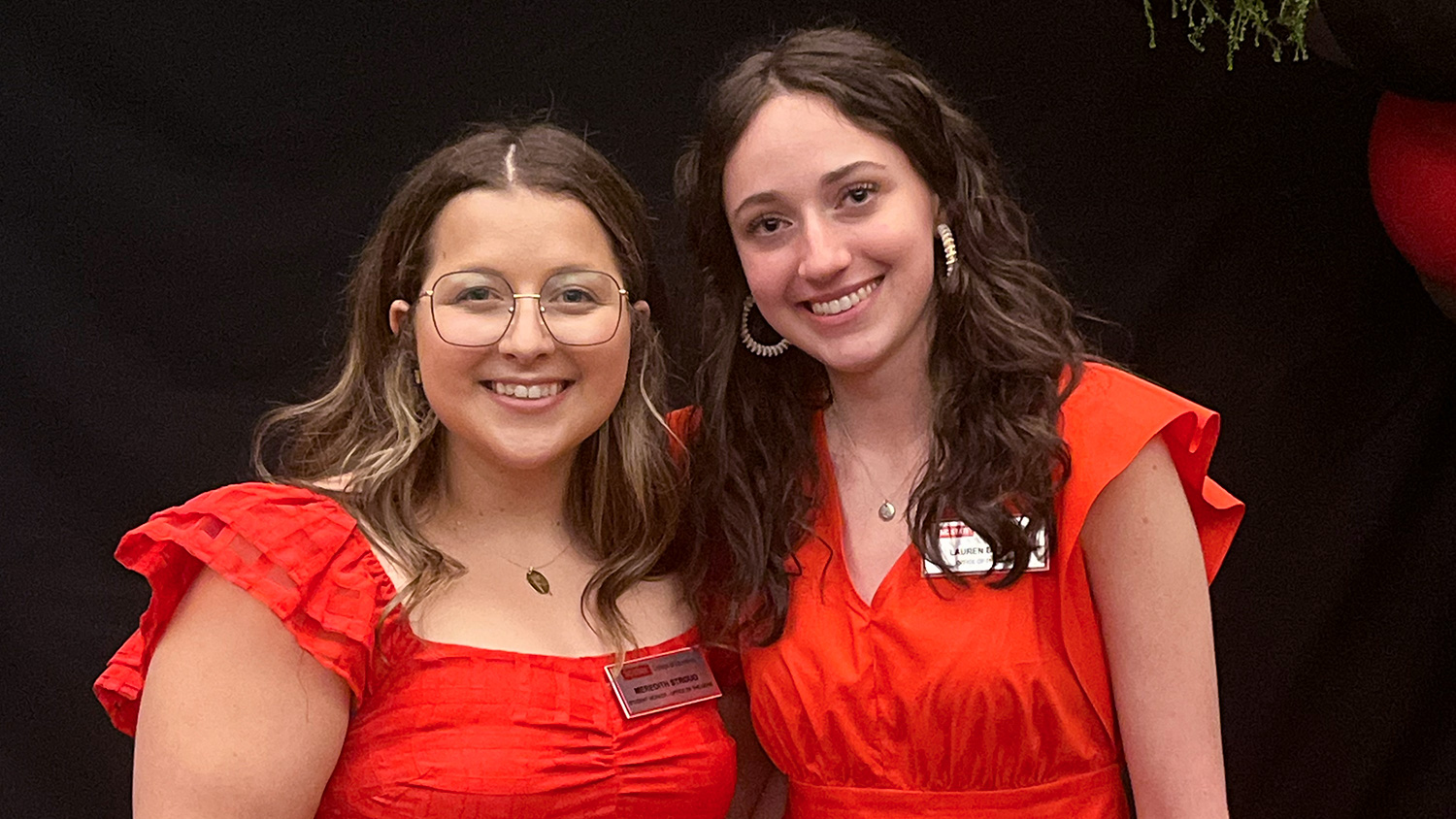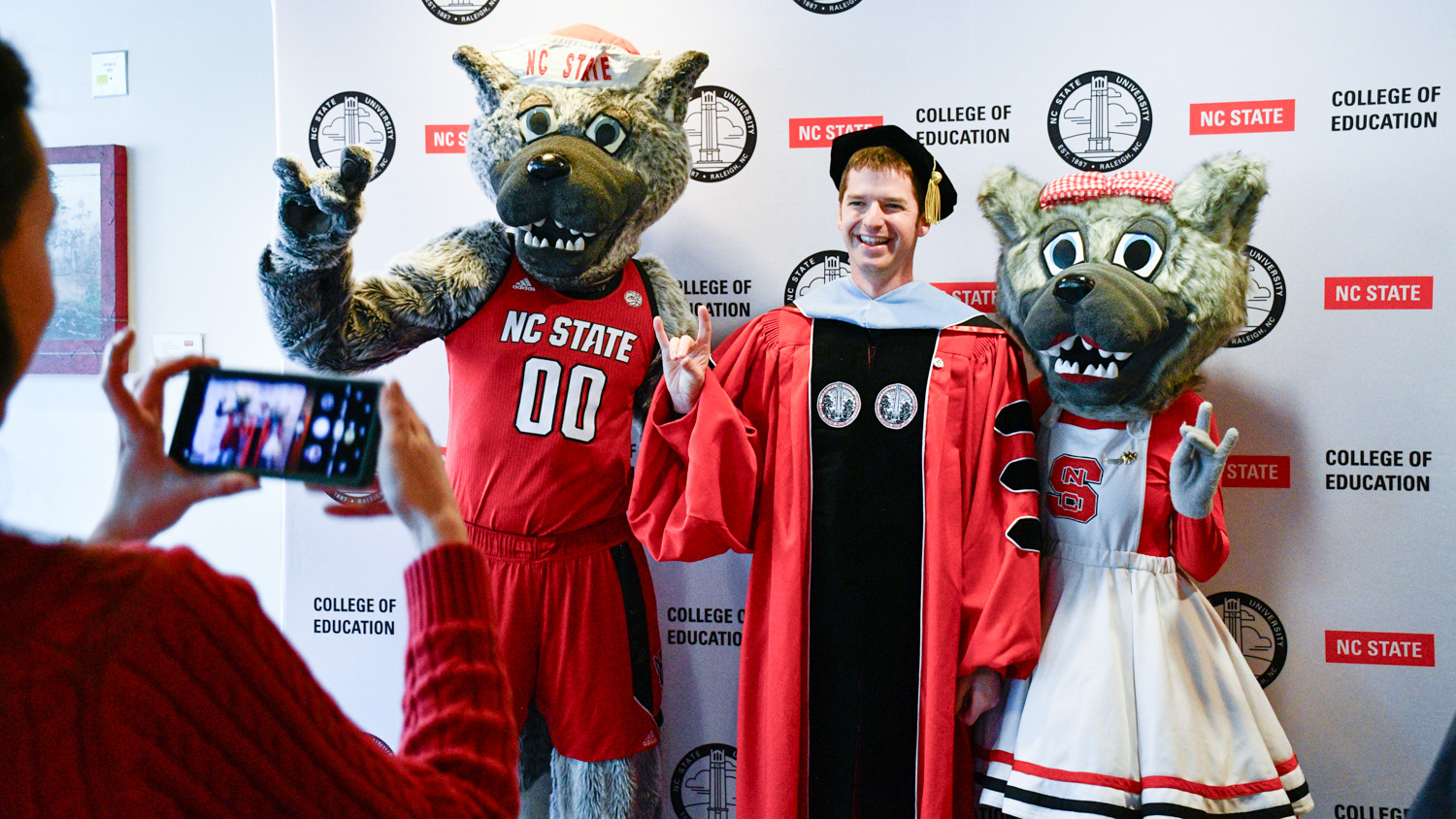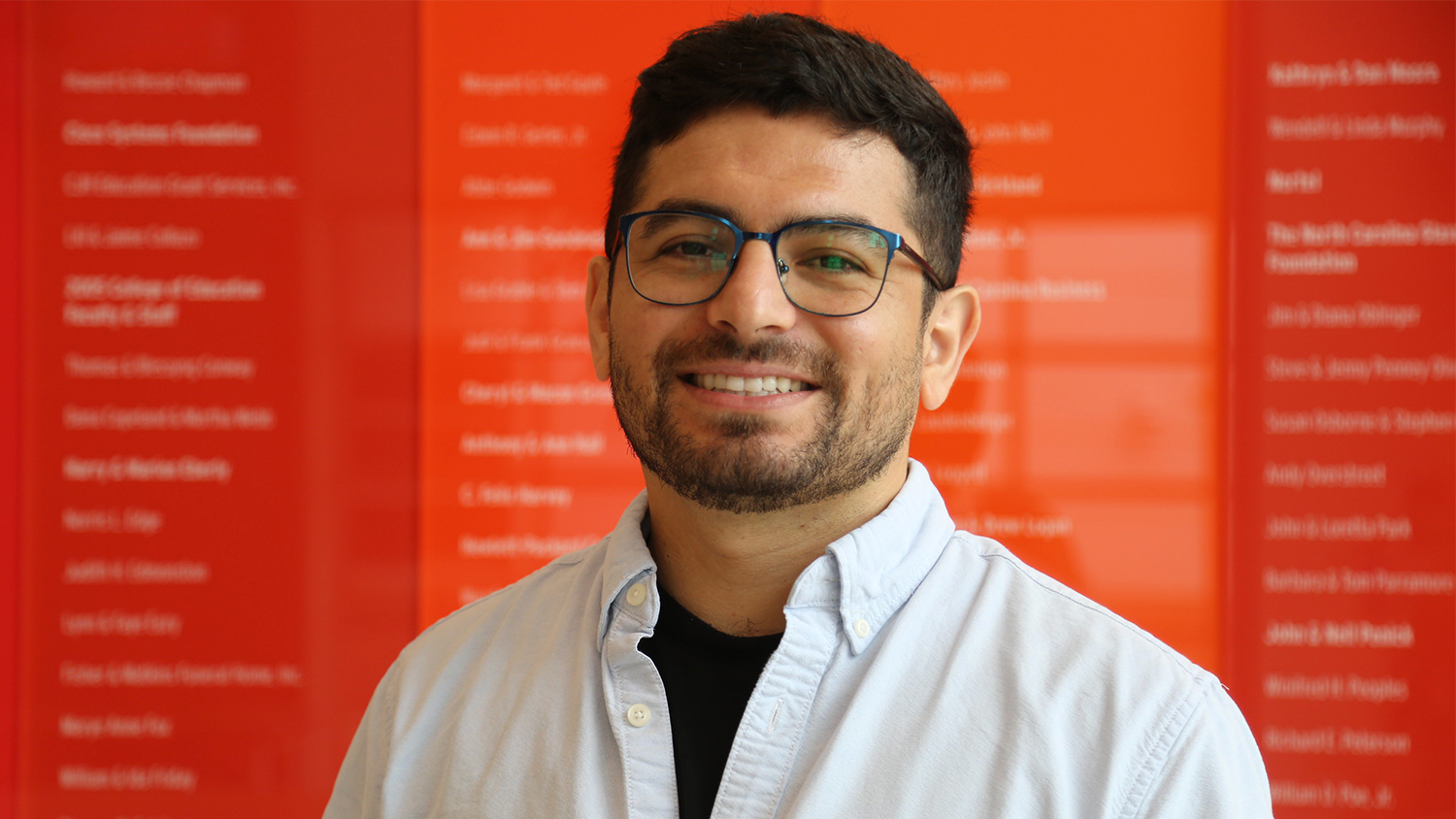Megan Patberg Morin ’16MED, ’22PHD: ‘I Try to Provide as Many Opportunities as Possible for Female Students and Others Who Have Felt Like Underdogs in the Field of Engineering’

When she was younger, Megan Patberg Morin ’16MED, ’22PHD said she felt like engineering was not for her. So, when she stepped into the classroom, she made it her mission to make sure the middle school girls she taught never felt the same way.
As she worked toward her Ph.D. in the Learning and Teaching in STEM Engineering and Technology Education program area of study, she continued to make it a priority to provide, in the form of hands-on engineering challenges, engineering education programs and undergraduate research experiences, as many learning opportunities as possible for female students and others who have felt like underdogs in the field.
Now, as she prepares to graduate with her doctoral degree, she is looking forward to using what she’s learned to create and design engineering-focused programs that support faculty and students, promoting best teaching practices, engineering retention and inclusivity.
Learn more about Megan Patberg Morin
Hometown: Murrysville, Pennsylvania; currently living in Holly Springs, North Carolina
Degree: Ph.D. in Learning and Teaching in STEM Engineering and Technology Education program area of study
Activities (Research or Extracurricular): Research interests — engineering education teaching pedagogies, faculty development, program assessment, undergraduate research experiences
Why did you choose the NC State College of Education?
I chose the NC State College of Education because of the people and approach to the program. I started my Master’s of Education in Technology and Engineering Education here in 2015. I gravitated to the “learn and do” approach to the classes. I honestly cannot remember ever taking an exam in my entire graduate experience. All applied projects and papers promoted learning, growth and reflection.
NC State chose me for my Ph.D. program. I completed a two-week internship at FREEDM Systems Center as one of my last requirements for my master’s program. Less than a year later, Dr. Pam Carpenter, who was an affiliated faculty member in what was then the Technology, Engineering, and Design Education program at the time and who was also the director of education and workforce development for FREEDM, invited me to a cup of coffee at Cup of Joe. She shared that she had a graduate assistantship and encouraged me to apply and complete the Engineering and Technology Education Ph.D. program. I said, ‘I don’t think I am the Ph.D. type.’ But, she still encouraged me to consider. I said yes, and the rest is history.
Why did you choose your area of study?
When I was younger, I felt mediocre in my math and science courses compared to my peers in more advanced courses and in higher grades than myself. As a result, I never thought I would be good enough to pursue a career in engineering. After visiting an engineering program in a stale lecture hall with an older male gentleman, it solidified what I thought — that I was not that type of book smart and could not relate to the faculty there. So, before trying out accounting and elementary education, I found the right fit with middle childhood education.
My passion came after working with middle school girls in STEM and engineering education because I never wanted them to feel like I did. Through hands-on engineering challenges and engineering education programs like undergraduate research experiences, I try to provide as many opportunities as possible for female students and others who have felt like underdogs in the field of engineering.
What do you hope to accomplish in your field after graduation?
I hope to create and design engineering-focused programs that support faculty and students, mainly promoting best teaching practices, inclusivity and programs supporting engineering retention.
What’s your next step? What do you have planned after graduation?
Currently, I work as the KEEN program coordinator in the department of applied physical sciences at UNC-Chapel Hill. In my role, I lead faculty development, assessment, and project management surrounding entrepreneurial-minded learning. I look forward to expanding my role in the fall!
How has the College of Education prepared you for that next step?
First, during my online Master of Education degree at NC State, I never had to take a test and all my major deliverables were projects. My roommate at the time was also in a master’s in education program at another North Carolina institution, and she had a lot of textbook assignments. She used to get jealous of my homework!
Second, the College of Education practices what it preaches. The real-world applications in their graduate programs are designed to fit our personal specialties and expertise. For example, my program generally targets K-12 technology/CTE educators, while my specialty leaned towards engineering higher education. My classes were still relevant to the field, and my professors allowed me to select topics that fit my interests and were applicable to what I was doing in my job at the time. The one major specialty that I learned in my classes that has now become part of my position is assessment. The College of Education provided courses and tools that equipped me to be more adaptable in my job position and provided me an opportunity to be promoted. There were also many times that I used projects and papers from my classes in my job. The College of Education creates a culture where it is student-centered and has relevant applications.
Do you have a favorite memory from your time in the College of Education?
I would say the time spent with my department when I was taking classes. Our department would gather together frequently to socialize and discuss different things in our field. These gatherings happened formally, informally, at conferences, etc. The sense of community made the experience so different. Recently, I was back on campus and texted two of my closest friends in the program and said how a small part of me missed classes because of the time we would hang out together. It was the family-like feel that kept me going through the program.
Tell us about an experience you had with the College of Education that had the biggest impact on you or your career.
I faced many challenges throughout my program that could easily have derailed me from completing my degree, such as my dad’s sudden passing, two pregnancies, a pandemic and starting a full-time position. Whenever I felt overwhelmed or unsure what to do, I had someone to turn to for help, including the faculty. Typically in doctoral programs, faculty can get a bad reputation for overworking their students and disconnecting with students as real people. I had the complete opposite experience with the faculty in the College of Education. The moment that solidified that for me was when my dad passed. All the faculty and students supported me. I had faculty accommodate me with deadlines and provide the time I needed before I returned. If the faculty were not supportive, I don’t think I would have finished my program. The students in my classes were confidants, allies and a support system. The College of Education is filled with the most amazing people.
Why did you choose education?
Since I was little, I played school with my siblings. I enjoyed helping my little sisters and brother, and I enjoyed the environment of a school. As I have worked in different capacities in education at this point, the No. 1 reason I chose and continue to stay in education is because of the impact on others. In many situations, education determines your life pathway. For engineering education, I hope to support students by providing them with the tools and resources to pursue an engineering career if they want to do so. When I was younger, I didn’t think I was good enough or intelligent enough for the field. I want to change that for anyone who feels like an underdog in engineering.
What are your research interests? What inspired those interests?
I am interested in engineering-focused undergraduate research experiences, faculty development, assessment, and pedagogies. These interests have developed over time through opportunity and experience. Undergraduate research experience developed from my time as a graduate assistant at NC State’s FREEDM Systems Center and PowerAmerica. My interest in faculty development developed over time from my experiences with K-12 teacher professional development in project-based learning and engineering design and now my role at UNC with faculty development in entrepreneurial minded learning. Finally, my interest in assessment and pedagogy expertise developed from my time as a middle school teacher, my courses at NC State and my position at UNC measuring the impact of different programs related to entrepreneurial-minded learning.
- Categories:


